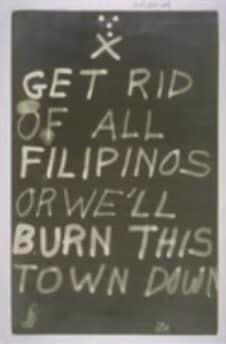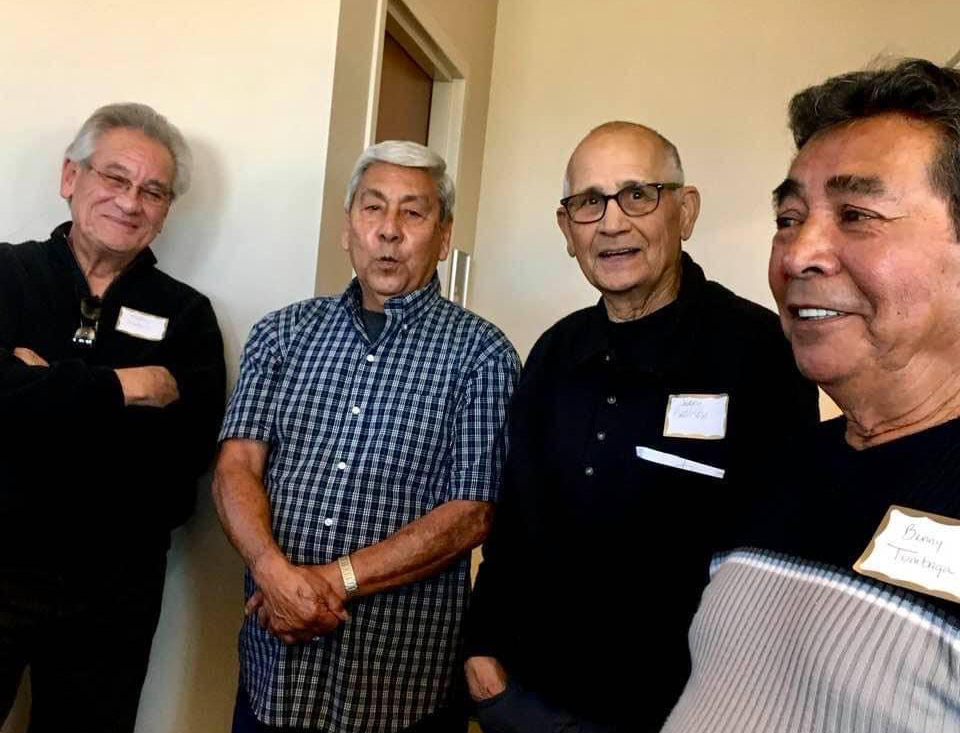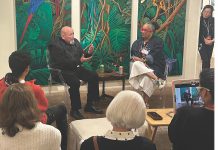
WATSONVILLE—In a historic move at Tuesday’s City Council meeting, the City of Watsonville officially apologized to the local Filipino community for the 1930 anti-Filipino race riots, which ended in the death of one man and ignited unrest across California.
It did so in a resolution brought forth by Mayor Rebecca J. Garcia.
For five days in January of 1930, hundreds of armed white men took to the streets of Watsonville, targeting and beating Filipino-American workers who they claimed were stealing their jobs and women, according to multiple reports.

The riots reached a head on the night of Jan. 20, when 22-year-old Fermin Tobera died after being shot on San Juan Road. The incident was a catalyst for more riots, instigated by white men around the state.
It has been 90 years since the riots occurred. In 2011, Assemblyman Luis Alejo authored a landmark bill to apologize for California’s discrimination toward Filipinos and Filipino-Americans, which was passed by the State Senate.
But no official apology by the City of Watsonville had been made until now.
Manuel Quintero Bersamin, a former city council member who was also Watsonville’s first Filipino-American mayor, expressed his thanks to current members for moving forward with the resolution. He pointed out all of the different people in attendance at the virtual meeting.
“There are a lot of old-time Watsonville names here,” he said. “Filipino-American names, but also white names, Latino names. It’s a wonderful thing. I want to thank the council for taking this on.”
Recently, a group from Watsonville, led by third generation Filipino-American Roy Recio, have been working on the Tobera Project, which chronicles pivotal moments in local Filipino history. A special exhibition to go with the project, “Watsonville is in the Heart,” is currently on display at the Watsonville Public Library.
Recio said it was important to remember not only the riots, but the many contributions of the Filipino community.
“[They] came here in the 1920s and ‘30s to work the land… they were brought here as cheap labor,” he said. “They did the jobs that no one else wanted to do… 10 hours a day, hauling irrigation pipes, picking strawberries, making people rich. They sacrificed, they struggled and persevered to bring us here today.”
Recio’s recent work shined a spotlight on the fact that no formal apology had been made. Many people—Filipino and otherwise—had not heard of the riots. At Tuesday’s meeting, local resident Edgar Ibarra Gutierrez admitted that he had not learned of it until his late 20s. He thanked the City for it’s proclamation, but urged them to make sure that future generations were taught the history.
“Encourage your schools to teach this in their public education system,” he said. “We need to know what happened in our own community.”

Gutierrez was one of many speakers who also called for physical recognition, such as a statue in the City Plaza, a mural or a school renamed in honor of a local Filipino figure. Newly appointed Cabrillo College board member Steve Trujillo pitched the idea of a Filipino student center at the community college’s Watsonville campus.
Katelyn Cortez, who grew up in Watsonville and now attends UC Berkeley, thanked the council but added that she hopes for more in the future, such as the City helping fund the Filipino community’s scholarship program.
“Yes, it is appreciated if we receive a plaque, or a school or street is named after one of our own… But it’s not enough,” she said. “We need lasting impacts that will continue to benefit the Filipino community for years to come.”
As the meeting progressed, more and more people joined in to tell personal family stories, give their own perspectives and thank the council for the overdue resolution.
This included California State Assemblymember Rob Bonta, who was the first Filipino-American state legislator in the history of California.
“I appreciate your willingness to issue this apology,” Bonta said. “It’s deeply meaningful. It expresses an intention of inclusion and forward-thinking. It’s never the wrong time to do the right thing.”
•
To read the City of Watsonville’s full proclamation, go to cityofwatsonville.org. To learn more about the Tobera Project and “Watsonville is in the Heart” visit toberaproject.com.









